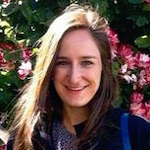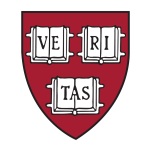GIIM was proud to host the second Women in Math and Statistics Conference at the Harvard Science Center on Saturday, April 1st, 2017. The conference was held in Science Center Hall D, with lunch in the Austin and Chilton McDonnell Common Room.
This conference supports the Non-Discrimination Statement of the Association for Women in Mathematics. We are proud to hold this year’s conference in Cooperation with the AWM.
Next year’s conference is planned for early April–check our main WIMS page for updates!
About
WIMS hopes to connect women, gender minorities, and allies interested in math and statistics in the Boston area. Our mission is to provide you with the opportunity to connect with leading mathematicians working in both academia and industry and to interact with your peers. For our first year, we had an exciting agenda of speakers, panels, and workshops–see last year’s schedule here. All genders welcome!
This year, our keynote speakers will be Ruth Charney, Theodore and Evelyn Berenson Professor of Mathematics at Brandeis University and former President of the AWM, and Jennifer Balakrishnan, Clare Booth Luce Assistant Professor of Mathematics and Statistics at Boston University.
Schedule
| Registration and Breakfast | 9:00 am |
| Welcome and Keynote #1 Jennifer Balakrishnan |
10:00 am |
| Gender Gap Panel | 11:10 am |
| Lunch and Breakout Sessions (see below for details!) | 12:30 pm |
| Keynote #2 Ruth Charney |
2:15 pm |
| Careers in Math Panel | 3:30 pm |
Keynote Speakers
Keynote #1: Jennifer Balakrishnan
 |
Jennifer Balakrishnan is a number theorist working on explicit methods for curves. Her research is motivated by various aspects of the classical and p-adic Birch and Swinnerton-Dyer conjectures, as well as the problem of algorithmically finding rational points on curves. She is currently the Clare Boothe Luce Assistant Professor of Mathematics at Boston University. Previously, she was a Titchmarsh Research Fellow at the Mathematical Institute of the University of Oxford, a Junior Research Fellow of Balliol College, Oxford, and an NSF Postdoctoral Fellow at Harvard. Balakrishnan received an AB and AM in Mathematics in 2006 from Harvard University and a PhD in Mathematics from MIT in 2011. |
Keynote #2: Ruth Charney
 |
Ruth Charney is the Theodore and Evelyn Berenson Professor of Mathematics at Brandeis University and a Fellow of the American Mathematical Society (AMS). She received her PhD from Princeton University in 1977 and held postdoctoral positions at UC Berkeley, and Yale University. After 20 years on the Ohio State University faculty, she returned to Brandeis, her undergraduate alma mater.
Charney’s research involves the interplay between topology and algebra. Her work spans several areas of mathematics, including K-theory, algebraic topology, and geometric group theory. She also enjoys giving lectures that offer the general public insight into the beauty of abstract mathematics. In addition, she has been involved in a variety of professional activities. She served as a Vice President of AMS, as well as a member of their Board of Trustees. Many of her professional activities are aimed at encouraging and mentoring women in mathematics. From 2013-15, she served as President of the Association for Women in Mathematics (AWM) and over the years, she has organized numerous conferences, workshops and panels aimed at promoting diversity. |
Panels
The Gender Gap: Context, Stories, and Strategies
Panelists will share their stories and experience as we discuss the gender gap in mathematics. Moderated by a member of the Women in Public Policy Program at the Harvard Kennedy School, this panel will discuss the history and theory of the gender gap as well as ways to alleviate it, on a personal and institutional level.
 |
Our moderator, Anisha Asundi, MPH, is currently a Program Fellow at the Women and Public Policy Program (WAPPP) at the Harvard Kennedy School. Her work at WAPPP centers on managing the Gender Action Portal (gap.hks.harvard.edu), an online collection of experimental research summaries that work to close gender gaps in economic opportunity, political participation, health and education. Her prior research experience, academic knowledge and practical work lies in the foundations of health equity – particularly in increasing the wealth of research among vulnerable populations such as women, people of color, LGBTQ communities and low-income populations, and in quantitatively and qualitatively evaluating intervention programs for these populations as well. |
 |
Moon Duchin is an associate professor of Mathematics, specializing in geometric group theory and geometric topology, and also directs the interdisciplinary program in Science, Technology, and Society at Tufts University. She’s been involved for years in a range of projects to broaden participation in mathematics. These days she runs a working group on the mathematics of gerrymandering. |
 |
Piper Harron is a number theorist, assistant professor at University of Hawaii at Manoa, and self-described “liberated” mathematician. She received her Ph.D. from Princeton University in 2016 for her study of the equidistribution of lattice shapes of cubic, quartic, and quintic number fields. But her thesis is less dry than that explanation: In it, she weds mathematics with the political, the personal, and the artistic. Throughout her time as lecturer for Northeastern, Masters and Ph.D. candidate at Princeton, and now as assistant professor at Manoa, Harron has fought the misogyny, racism, and stifling traditions in the mathematical community. |
 |
Morgan Opie is a Ph.D. student in mathematics at Harvard. She received a degrees in mathematics from the University of Massachusetts Amherst in 2014. She also received a Master of Advanced Study degree through Part III of the Mathematical Tripos from the University of Cambridge on a prestigious Churchill Scholarship. Her interests include algebra-related topics, in particular algebraic topology. In 2014, she was the runner up for the Alice T. Schafer Prize, a national prize for excellence in mathematics by an undergraduate woman. |
 |
Rosa Orellana (unable to attend due to inclement weather) received her Ph.D. from UCSD. She is currently Full Professor at Dartmouth where she is lucky enough to teach some of the best students in the country. Rosa has mentored many undergraduate students on research projects. In 2006, she received the John M. Manley Huntington Memorial Award at Dartmouth for outstanding research, teaching and mentoring. Rosa co-founded a chapter of the Association for Women in Mathematics in an effort to increase the number of women taking and majoring in mathematics at Dartmouth. She has also organized Sonia Kovalevsky Math days to encourage middle and high school girls in our community to study mathematics. Her area of research is algebraic combinatorics. Algebraic combinatorics is an area of mathematics that studies objects that have combinatorial and algebraic properties. |
Career Paths: Linear, Smooth, and Otherwise
There are many diverse paths through mathematics, leading toward a range of careers and lifestyles. Panelists from academia in applied and pure math, tech, and graduate school will share their experiences and advice, while our moderator will offer a student’s perspective.
 |
Our moderator, Amanda Glazer, is currently pursuing her AB in mathematics and AM in statistics at Harvard. She is the former co-president of GIIM and co-founded the organization. She is passionate about making math a more inclusive field and does a variety of research on the gender gap in mathematics, including a National Math Survey last year to assess the climate of math departments nationwide. |
 |
Margo Levine is a Lecturer and Associate Director of Undergraduate Studies in Applied Mathematics at Harvard University. Prior to joining Applied Math, she held postdoctoral researcher positions at Harvard Medical School and the University of Chicago, where she worked on image quality and reconstruction problems for positron emission tomography (PET) and computed tomography (CT) data. |
 |
Sha Lu is a Data Scientist at Instagram working on Explore, a surface that gives high-quality content recommendation based on user signals. After studying math and economics at Wellesley College, she did banking theory research at the New York Fed before joining Facebook and Instagram. Sha loves the importance of product analyses and is super excited to share how math has opened her career to Data Science in the tech industry. |
 |
Melissa Zhang is a third year PhD student at Boston College, currently studying homology-type invariants in low-dimensional topology. She completed her undergraduate degree at Caltech, where she majored in math. |
 |
Brooke Ullery is a Benjamin Peirce and NSF postdoctoral fellow at Harvard University. She graduated in 2015 from the University of Michigan with a Ph.D. in mathematics. Her advisors were Rob Lazarsfeld and Karen Smith. She spent the academic year 2015-16 as an NSF postdoctoral fellow at University of Utah, where she worked with Aaron Bertram. Her research interests are in algebraic geometry and commutative algebra. She is mostly interested in problems in classical algebraic geometry, especially those dealing with vector bundles and linear systems. |
Breakout Sessions
Quotes from Last Year
“I think this was a wonderful experience that I hope will continue for many years to come. I hope the word gets out even more and appreciate all the effort gone into making this conference happen! It was amazing talking with all of these other younger women who have similar experiences and goals as I do.”
“Great day! I really enjoyed connecting with other math students in the Boston area and discussing gender inequality issues with leading female figures in the math field. Would definitely attend again next year.”
Sponsors


